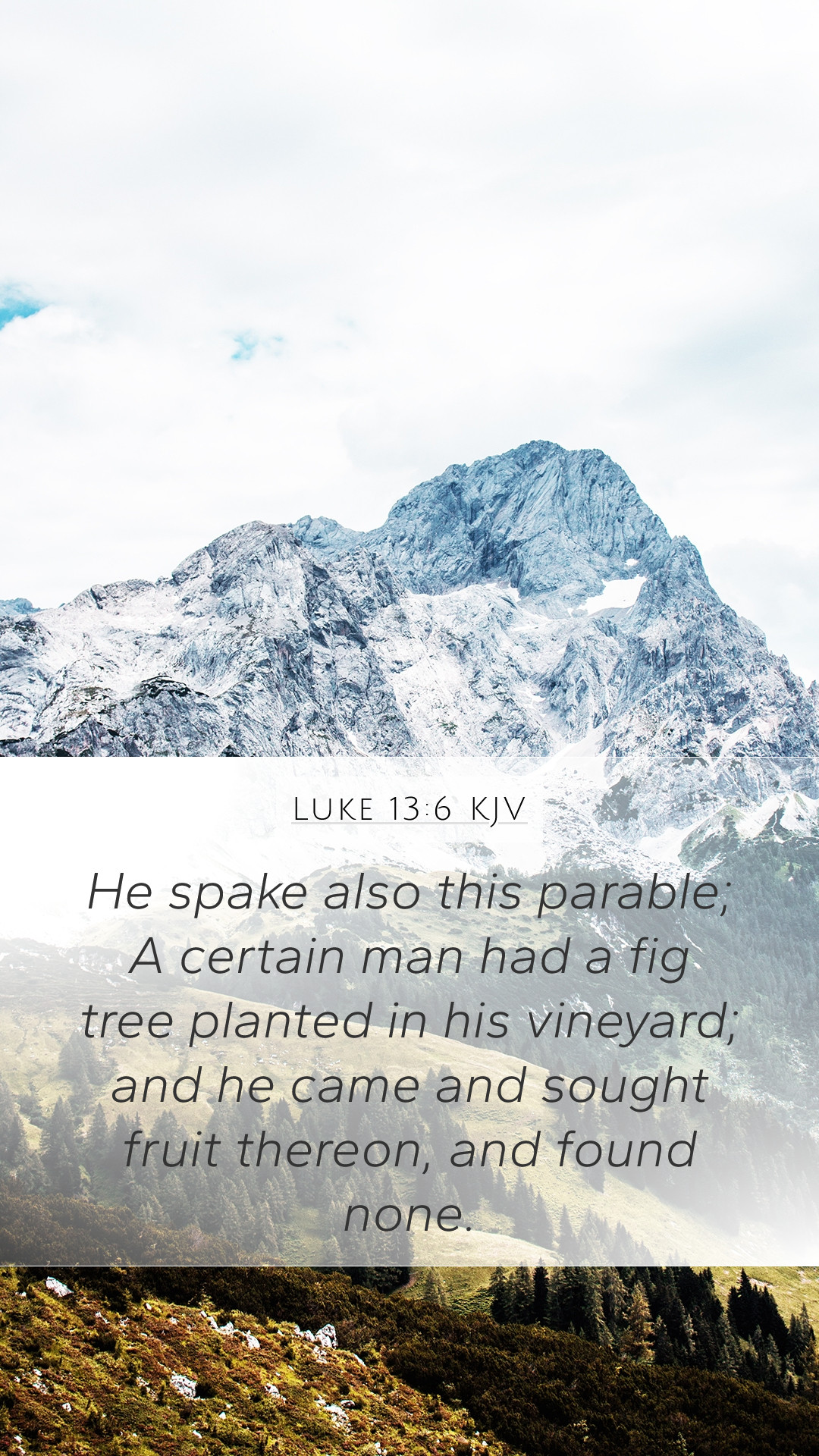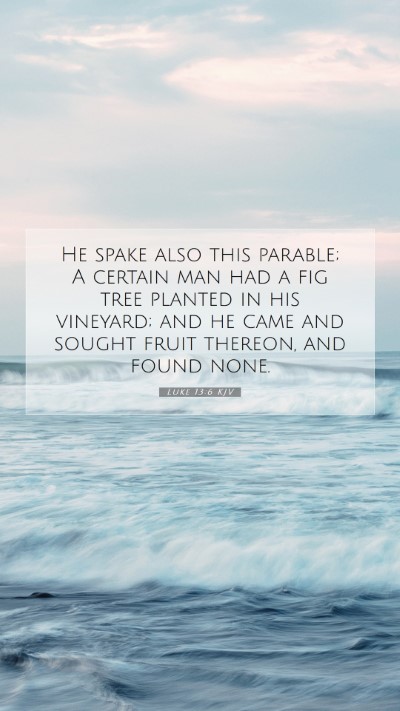Bible Verse Meaning: Luke 13:6
Verse: "He spake also this parable; A certain man had a fig tree planted in his vineyard; and he came and sought fruit thereon, and found none." (Luke 13:6 KJV)
Summary of Luke 13:6
In this verse, we encounter a parable that illustrates God's expectations of His people and the consequences of spiritual unfruitfulness. The fig tree, often associated with Israel in scripture, represents individuals or nations that fail to produce the fruits of repentance and righteousness. This parable serves as a reflection of God's patience and the need for accountability in the face of unfruitfulness.
Bible Verse Interpretations
- Matthew Henry's Commentary: Henry explains that the fig tree symbolizes the Jewish nation and their lack of true piety. The owner's search for fruit represents God's searching work among His people, and His disappointment highlights the necessity for believers to bear fruit in their lives.
- Albert Barnes' Notes: Barnes emphasizes that the parable signifies God's mercy and long-suffering nature, as well as His justice. The vineyard owner represents God who seeks fruit, and the absence of fruit calls for reflection on the true condition of one's faith.
- Adam Clarke's Commentary: Clarke discusses the parable's representation of time given to repent and change. The fig tree, having received sufficient care and attention, must now be held accountable for its lack of fruit. This points to the urgency of spiritual awakening and the importance of bearing good fruit.
Key Themes and Insights
- God's Expectation: This verse communicates God's desire for fruitfulness among His people.
- Divine Patience: The owner's repeated visits to check for fruit demonstrates God's patience and willingness to give time for change.
- The Call to Action: The parable urges believers to engage in self-examination to ensure they are producing spiritual fruit.
- Judgment and Mercy: While God is merciful, this parable warns of the eventual judgment that follows unfruitfulness.
Understanding the Parable
As we delve into the meaning of this Bible verse, it's important to understand the agricultural context in which it was told. Fig trees require diligent care; hence, when they fail to yield fruit after a significant period, the disappointment is profound and warranted. The parable reflects both a challenge to the hearers and an invitation to explore the consequences of spiritual barrenness.
Application of Luke 13:6 in Daily Life
Luke 13:6 calls readers to reflect on their own lives and productivity in faith. It asks us to examine whether our lives are bearing the fruits of the Spirit such as love, joy, peace, and kindness. This can lead to fruitful discussions within bible study groups or in online bible study settings as individuals share their personal interpretations and applications of the verse.
Related Bible Cross References
- Matthew 21:18-19: Jesus curses a barren fig tree, reinforcing the theme of unfruitfulness.
- John 15:1-2: The necessity of abiding in Christ to bear fruit.
- Isaiah 5:1-7: A song of the vineyard emphasizing God's care and the importance of yielding good fruit.
In-Depth Bible Study Insights
This verse offers rich material for Bible study insights and scripture analysis. Studying the cultural significance of fig trees within the biblical narrative enhances understanding. Activities can include examining how Jesus uses agricultural imagery to convey spiritual truths, further connecting with the audience of His day.
Conclusion
Luke 13:6 stands as a poignant reminder of God’s call for us to be fruitful in our spiritual lives. Through understanding and applying this verse, believers can foster a closer relationship with God, ensuring that they produce the fruits of faith that He desires.


